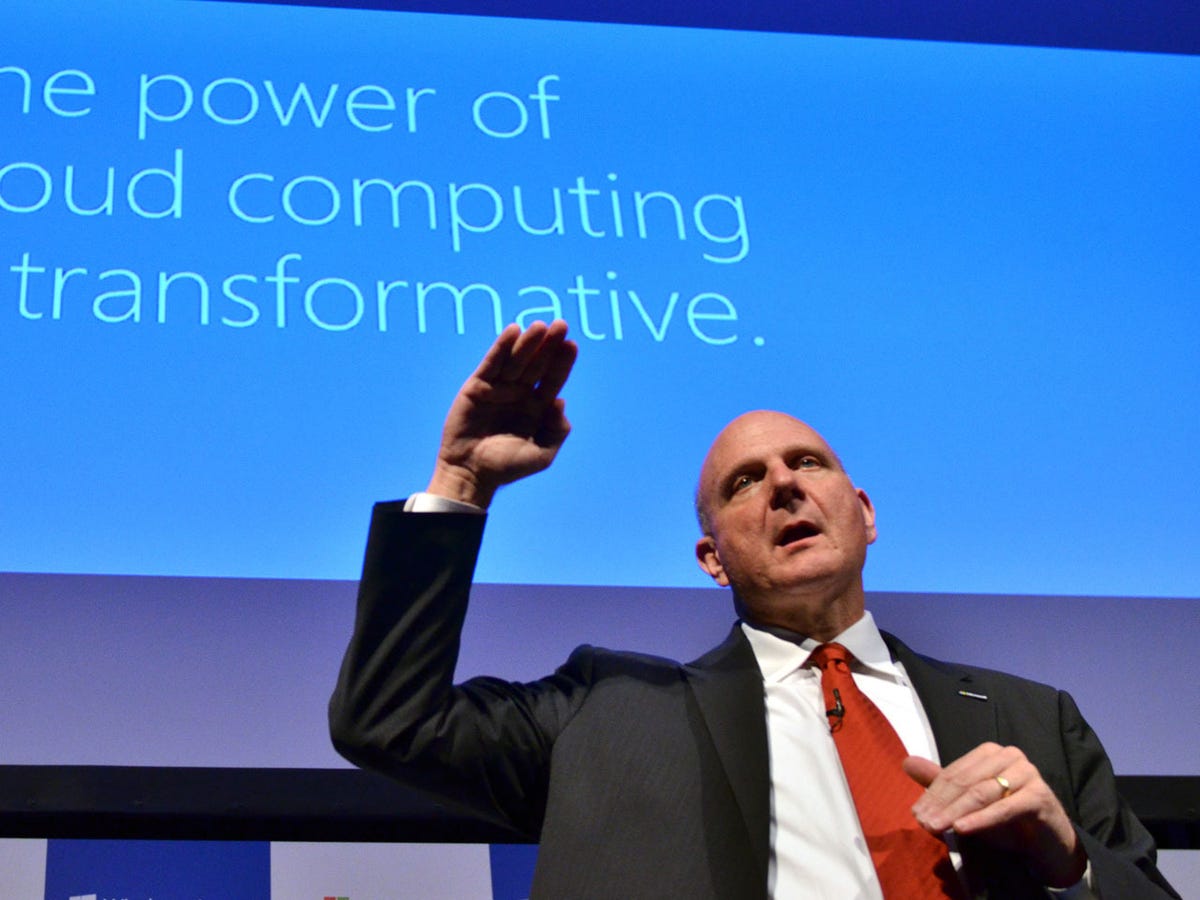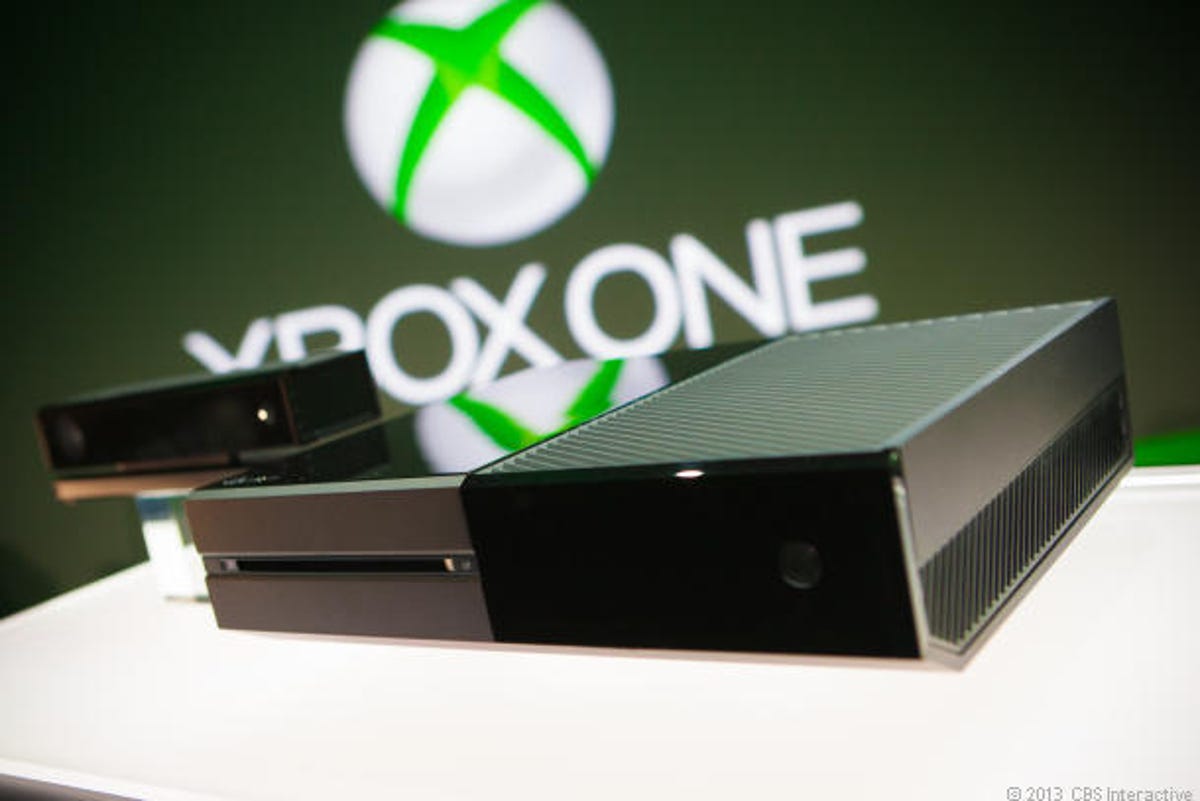During his quieter moments — assuming they even exist any more — outgoing Microsoft chief executive Steve Ballmer might be excused for wondering why the company he has led for the last decade, blessed with enormous wealth and so many smart people, has had to struggle so long and hard for its tech cred.
Even if Microsoft’s board lucks into hiring someone to replace Ballmer who combines the managerial genius of an Alfred P. Sloan with the formidable intellectual insights of a Peter Drucker, the new boss still inherits a legacy packed with wince-worthy embarrassments, such as Zune and Vista and the stillborn Kin phones. Just as bad, Microsoft is still trying to escape the consequences of its disastrous stumbling about to move beyond the PC.
But how many other technology companies have been around this long without a clunker or two (or three)? Remember the Apple Lisa? What about the hockey puck mouse? Feel free to slam Microsoft for its myriad miscues, but let’s not forget there’s another side of the ledger, including Xbox and Flight Simulator, Windows 95 and Windows XP, Microsoft Exchange Server, and MS Office. Few other tech companies — not IBM, not Hewlett-Packard and surely not Google — can boast that breadth of expertise in the consumer and business markets.
Unfortunately for Microsoft, trips down memory lane won’t be enough to impress the cool kids.


Yoshikazu Tsuno/AFP/Getty Images
The company risks irrelevance — or worse — if it can’t pilot a successful and rapid course correction. I’ve explained elsewhere my problems with the better-without-Ballmer scenario, but Wall Street apparently can’t wait for the big guy to vacate the premises. Traders have pushed the stock up to six-year highs, reflecting the hope that the next CEO will do for Microsoft what Lou Gerstner did for IBM back in the 1990s.
Breaking up is hard to do
The conventional wisdom is that a smaller Microsoft translates into a stronger Microsoft, and either of the two most likely CEO candidates could do the honors. Stephen Elop, the former Nokia CEO reportedly on the short list, is apparently open to dumping the Xbox and Bing businesses. That would be a tough decision, but during his three years running Nokia, Elop killed off sacred cows and fired tens of thousands of workers.


Getty Images
The other apparent top choice, Ford CEO Alan Mulally, also has been an agent of corporate change. He brought Ford back from the brink, closing plants and product lines that did not fit with his vision — and it paid off. During the throes of the Great Recession, Ford was the only one of the Big Three auto companies that didn’t take a government bailout. Before joining Ford, Mulally already was hailed as a corporate star for reviving Boeing, which also had suffered through a long decline.
But if a Microsoft bust-up is inevitable, the Gerstner analogy is imprecise, though there are similarities. Let’s page back a few years
When Lou Gerstner took over as its CEO in 1993, IBM, the dominant tech company of its day, was in trouble. Big trouble. The company was en route to losing $16 billion. Tom Watson’s old company was drowning in malaise and confusion. In fact, when Bill Gates showed up for a meeting at Big Blue’s New York headquarters, the company’s confused security staff inadvertently gave him the security pass reserved for Lotus head Jim Manzi, who was slated to meet with Gerstner later that same day.


CBS News
“By the time Bill arrived on the 40th floor,” Gerstner recalled in his 2002 memoir, “he wasn’t happy.”
Failing to make Gates happy was the least of Gerstner’s problems. There was no clear path back to profitability but there also was no shortage of advice. In fact, John Akers, his immediate predecessor, had come up with a blueprint to break IBM into a confederation of 13 so-called “Baby Blues.”
“If you’re going to have a more prosperous business, a faster-growing business, a more exciting business by changing something as opposed to leaving it the way it is, then you ought to change it,” Akers told an interviewer.
Is Microsoft fixable?
On the surface — no pun intended — that sounds similar to what some folks now say Microsoft ought to do. Gerstner, however, had different ideas about how to fix IBM. He shelved Akers’ plan to break the company into pieces. This was an operational challenge where the big problem was IBM’s calcified corporate culture. And Gerstner was ruthless when it came to cost-cutting, firing employees by the tens of thousands. He kept at it until IBM brought expenses and revenues into line. It was ugly but necessary to tame a company bureaucracy that had grown too large.
Just as important, Gerstner moved IBM into higher-end services consulting and integration, shedding money-losing businesses along the way. That was a hard choice but it was the right one. By the time Gerstner stepped down in 2002, IBM was again growing and poised for even greater prosperity under his CEO successor, Sam Palmisano, who completed his predecessor’s work by selling off IBM’s PC business to Lenovo.
When the new CEO takes over at Microsoft, a more complicated decision awaits. It isn’t as if Redmond needs to sell off its consumer businesses because the company’s hemorrhaging money. Just the opposite. In its latest quarter, Microsoft posted $5.2 billion in net income on $18.5 billion in sales. What’s needed is a fundamental change in strategy.
“That is something that they have to be asking,” said Charles Hill, a management professor at the University of Washington.


James Martin/CNET
That’s where the new CEO will earn his or her paycheck. Precisely because Microsoft is not a basket case, this isn’t about closing or selling a division or two. Ballmer could have done that years ago and it wouldn’t have mattered. The bigger problem is that the company remains very much a prisoner of its past success.
Related posts
- Best Laptop for 2022: The 15 Laptops We Recommend
- 3 Great VPNs for Xbox in 2022
- How to Get Word, Excel and PowerPoint Without a Microsoft 365 Subscription
- Ditch Your iPhone Password. Apple’s New iOS 16 Feature Is More Secure
- Best Game Subscription Services
In the Windows-centric era of the 1980s and 1990s, Microsoft’s operating systems monopoly was the equivalent of a license to print money. But the emergence of the modern Internet in the mid-1990s caught Microsoft off-guard. This was a pivotal point in the company’s history. The Internet represented huge opportunity as well as a threat to Windows and the idea that computing devices needed to run on a proprietary operating system.
Management scrambled to react to what Bill Gates famously called the Internet tidal wave. Microsoft responded aggressively — too aggressively, as it kneecapped Netscape and ultimately wound up getting sued by the Justice Department for antitrust violations.
Some contend that this was the event that knocked Microsoft off its game. The argument there is that the lawsuit distracted the company from recognizing a shift in the technology landscape, increasingly populated by Internet-based startups such as Google, Salesforce.com and Facebook. But that’s only part of the story.
Equally important was Microsoft’s determination to protect Windows even as the Internet gained popularity as a commerce and communications platform. There were extended, passionate debates, but ultimately Microsoft refused to break with its past and adopt a more Internet-centric future.
“Woulda coulda shoulda but didn’t ya,” a former Microsoft executive said recalling the arguments. “Ultimately it was Bill’s decision. When you’re king of the hill, you are driven to play defense and protect.” Rattling off the names of Microsoft muckymucks of yesteryear, the former exec continued: “Jim Allchin, Nathan Myhrvold, etc. — they all played to Bill’s desire to control it all forever. Paul Maritz tried to play mediator but in the end the reactionary forces won the battle but caused Microsoft to lose the war.”
None of this is news to Microsoft’s board, but does it have the courage to hire someone with a mandate to kill sacred cows? We’ll soon learn the answer. Still, if the next Microsoft CEO doesn’t receive a mandate to enact real change, Ballmer’s replacement will be little more than a steward, milking a profitable, declining company easing into middle age.



